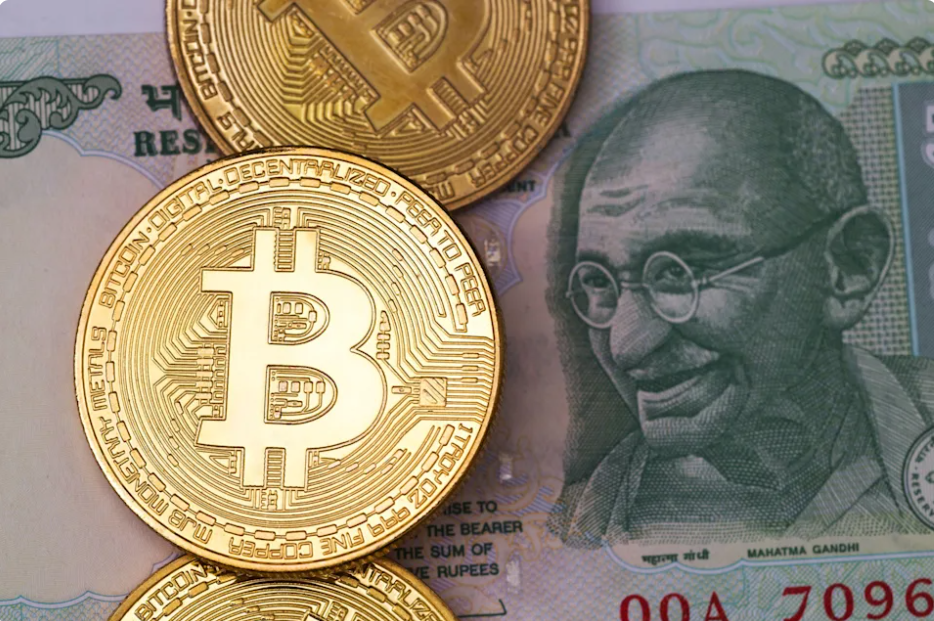
Indian government to most likely designate Bitcoin as an asset class, market regulator Securities and Exchange Board of India (SEBI) would be in charge of regulating the cryptocurrency sector.
After the central American country El Salvador announced the adoption of Bitcoin as a legal tender, a new report claimed that the Indian government has softened its attitude on cryptocurrencies and will most likely designate Bitcoin as an asset class in the country soon.
As reported by The New Indian Express, a source said that following Bitcoin’s designation as an asset class, market regulator Securities and Exchange Board of India (SEBI) would be in charge of regulating the cryptocurrency sector.
India’s crypto industry is currently in negotiations with the finance ministry about drafting new laws, according to industry sources, while an expert group at the ministry is looking at it.
Reports said that a Cryptocurrency Regulation Bill is expected to be introduced in Parliament.
The Future
Cryptocurrency’s condition in India is as volatile as its market price.
Despite the continuous volatility, approximately $1 billion has been invested in the digital currency market by more than 7 million Indians.
The number of Indians investing in Bitcoin and other cryptocurrencies is expected to skyrocket in the next months and years.
Nandan Nilekani, the non-executive chairman of Infosys, recently stated that Bitcoin might be acceptable as a store of value in India.
Because, as he stated, cryptocurrencies are not appropriate for transactions in India because the country already has superior alternatives (like UPI) for doing so.
According to a report by the Financial Express, in March, K.C. Ramamurthy, a Rajya Sabha member, inquired whether any assessment had been performed on how cryptocurrencies such as Bitcoin affect the country’s normal currency.
He also inquired about the countries that support or authorise the use of cryptocurrencies, as well as those that oppose it and those that have taken a medium ground.
Minister of State in the Finance Ministry Anurag Thakur, in a written response said: “The Reports of the Financial Stability Board (FSB) on Crypto-asset Markets, October 2018 and on Regulation, Supervision and Oversight of ‘Global Stablecoin’ Arrangements, October 2020 bring out the probable financial stability risks arising from the crypto-assets and stable coins”.
“It is stated in the Report of FSB on crypto-asset markets that crypto-assets lack the key attributes of sovereign currencies and do not serve as a common means of payment, a stable store of value, or a mainstream unit of account,” he added.
Around the same time, Parimal Nathwani, another Rajya Sabha member, questioned the risks that private cryptocurrencies like Bitcoin pose to the Indian economy.
In response, Thakur said that the RBI has issued public notices warning users, holders, and traders of virtual currencies (VCs), including Bitcoins, about the numerous hazards associated with dealing with such VCs.
While highlighting Budget Speech for 2018-19, Thakur said that the government does not consider cryptocurrencies to be legal cash or coins, and it will take all necessary steps to prevent their use in financing illegal operations or as part of the payment system.
Additionally, he said that the government will proactively investigate the use of blockchain technology to usher in the digital economy.
There are a few things that need to be understood while thinking when it comes to the question of considering cryptocurrency as a replacement.
Every economy is based on the government’s ability to regulate its currency.
In reaction to external and internal pressures, the government can decide how much of a currency should be issued.
If cryptocurrencies take the place of the rupee or the dollar, that power is lost.
Bitcoin, for example, has a limit of 21 million coins—which means that there are only 21 million Bitcoins in circulation and that no more may be minted even if there is a requirement.
In terms of other concerns, tax evasion, money laundering, and dealings in criminal activities could all be facilitated by such transactions.
However, it appears that Bitcoin will not be able to completely replace the rupee, dollar, or any other kind of paper money.
So, it is more practicable to coexist with two, which is why regulations become more vital.
The other factor is that most of the investors haven’t considered cryptocurrency as a payment option.
In comparison to the stock market or mutual funds, they use it to invest money and expand it swiftly.
This is the reason why many coins haven’t changed their IP address in the last several years, and it suggests that most people are hoarding them.
Digital currency is the way of the future, and there is no doubt. But the complete shift is not only unlikely but also quite concerning considering the turbulent status of cryptocurrencies.
Ketan Surana, director and chief financial officer, Coinsbit, and member, Internet and Mobile Association of India, recently said that “we can definitely say that the new committee which is working on cryptocurrencies is very optimistic on cryptocurrency regulation and legislation”.
“A new draft proposal will soon be in the Cabinet, which will look into the overall scenario and take the best step forward. We are very hopeful that the government will embrace cryptocurrencies and blockchain technologies,” he added.












